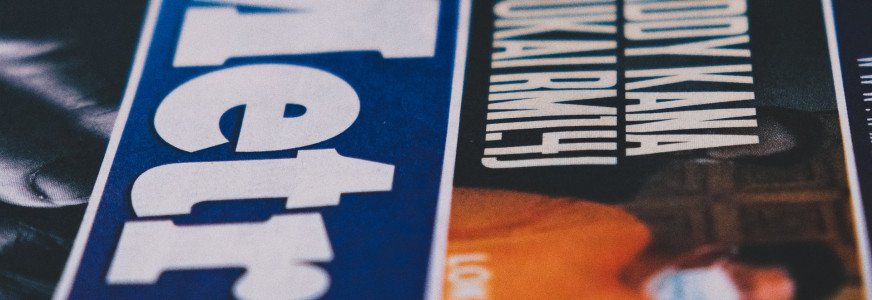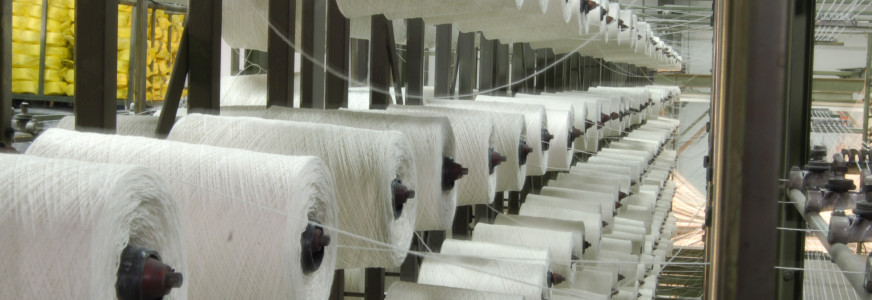Newsletter Buying & Production nr. 6, 22
Event
- Modint Webinar – CR Update 23 June
Due Diligence Tool
- New version Due Diligence Tool
Sourcing
- FMC: Blame High Container Rates on Supply-Demand Imbalance
- Rising cotton prices threaten garment makers in Asia
- IAF and MODINT’s Joint Participation in Sourcing Journal’s Road to 2030 Summit
CR
- Legislator urges consumers to make sustainable choices with reliable information
- Norway Warns H&M, Norrøna Over Misleading Sustainability Claims
- How fashion businesses can prepare for German Supply Chain Due Diligence Act
- Update Corporate Sustainability Reporting Directive (CSRD)
Safety & compliance
- Revision of the Toy Safety Directive
Quality & Sizing
- The Newest Alvanon Standard: North America Women
Event
Modint Webinar – CR Update 23 June
Modint Webinar CR update including EPR (UPV) and labelling obligations and European obligation on sustainability reporting upcoming. Read more
Due Diligence Tool
Version 4 of the Due Diligence tool is available. The Due Diligence Tool has been developed in close cooperation with Unicef and provides expert information on CR topics, including a risk matrix for major sourcing countries. Dowload the new version here
Sourcing
FMC: Blame High Container Rates on Supply-Demand Imbalance
The Federal Maritime Commission’s (FMC) investigation into rising ocean rates over the past few years has put to bed claims of carriers’ anti-competitive behavior, but concerns around an ever-growing list of fees levied against shippers remain.The FMC on Tuesday released a report on the conclusions drawn from a two-year investigation into how the pandemic impacted goods movement by sea, focusing on shipping costs, late fees such as detention and demurrage and the broader supply chain bottlenecks. Shippers’ voices grew louder over the past couple years in response to price hikes on containers and spot rates, or non-contract pricing. That’s occurred amid more skipped port calls, or blank sailings as they’re known in the industry, and record carrier profits. The FMC report by Commissioner Rebecca Dye ultimately found the price increases to be the result of a supply-demand imbalance, an unsurprising conclusion given FMC Chair Daniel Maffei had said about as much earlier this year at the annual TPM Conference reports Sourcing Journal. Read more (notice yoyu may need a login to read the complete article).
Rising cotton prices threaten garment makers in Asia
One of the region’s top employers, Asian garment makers are h facing mounting losses for some time with some small units even suspending operations, rendering thousands of workers jobless. Yet to recover from the sharp rise in freight and fuel prices, garment makers in Asia have been further hit by a spike in cotton prices with their global customers refusing to absorb the price rise. A few garment manufacturers are replacing cotton with cheaper synthetic fabrics to sustain operations. They factories are running at full capacity but without profits, says Siddiqur Rahman, Managing Director, Sterling Group, a Dhaka-based supplier to H&M and Gap, reports FashionatingWorld. Read more
Joint participation of IAF & Modint in 'Road to 2030 Summit' Sourcing Journal
Rens Tap, consultant at Modint and advisor to the International Apparel Federation (IAF) participated in the 'Road to 2030 Summit', organized by Sourcing Journal on June 1 in New York. A panel on Buyer/Supplier Transition was moderated by Us consultant John Thorbeck of Chainge Capital. Panelists who joined Rens Tap included David Sävman, head of H&M's global supply chain, and Matthias Knappe, programme manager and head of fibre, textile and clothing for the International Trade Centre in Geneva, fashionunited reports.
CR
Legislator urges consumers to make sustainable choices with reliable information
Consumers want reliable information about the durability of products when making their choice. The large number of sustainability labels, labels and claims reduces usability for consumers. Moreover, they do not provide the consumer with enough information to provide guidance. Only quality marks with clear information help consumers make sustainable choices. This is evident from the research commissioned by the Netherlands Authority for Consumers & Markets (ACM) into the knowledge and use of sustainability labels among consumers. They expect a steering role from the legislator, such as through certification of quality marks. Recent European proposals are aimed at helping consumers make sustainable choices and focus on stricter rules for quality marks, reports ACM. Read more (notice original article is in Dutch)
Norway Warns H&M, Norrøna Over Misleading Sustainability Claims
The Norwegian Consumer Authority has ruled outerwear brand Norrøna cannot use data from the Higg Index to back up environmental claims, dealing a blow to the industry rating tool amid a broader crackdown on greenwashing.Cotton farm; Merino wool; spools of polyester thread.The Norwegian Consumer Authority has found outerwear brand Norrøna’s use of data from the Higg Index to back up environmental claims is misleading to consumers and warned H&M Group against using the same type of marketing.The decision comes amid mounting scrutiny of big fashion companies’ sustainability claims, as concerns about greenwashing attract greater regulatory interest. It also deals a blow to the Higg Index, a widely used suite of tools developed by trade group the Sustainable Apparel Coalition, reports Business of Fashion.
Norrøna referred to the SAC for comment. The organisation said it is reviewing the NCA’s findings. H&M Group did not immediately respond to request for comment.Norrøna was among the first to use a consumer-facing product labelling tool introduced by the SAC last year, using data from the Higg Index’s materials module to show shoppers how a handful of its organic cotton T-shirts measured up on environmental factors like water use and global warming, compared to an equivalent T-shirt made from conventional cotton.The Norwegian consumer watchdog found the data provided by the Higg Index misleads consumers when used in this way. Though Norrøna’s marketing gives the impression an organic cotton T-shirt has a significantly lower environmental impact than one made with “ordinary” cotton, the authority said it could not find evidence for such a claim.
The decision is mainly due to the fact that the Higg Index’s materials module provides information about the average environmental impact of a particular material, not a specific product, the NCA said. But it also criticised limitations in the methodology and the fact that the underlying data is partly outdated. Norrøna must change or remove its marketing referencing data from the Higg Index by Aug. 14, the NCA said.While Norway’s consumer watchdog only investigated Norrøna’s marketing, it also wrote to H&M Group warning the company to ensure it is not using the same kind of marketing by Sept. 1 or risk economic sanction. The Swedish fast-fashion giant is among the companies that have used Higg data in consumer marketing. Meanwhile, the SAC received a warning that it could be held responsible if its members use Higg data as a basis for environmental claims in their marketing.The finding plays into an increasingly urgent debate over what “sustainable fashion” really means and how brands can back up any marketing. The SAC has sought to position the Higg Index as a suite of tools that can underpin such claims, but critics have argued the tools are not fit for use in marketing messages in line with the NCA’s decision.
How fashion businesses can prepare for German Supply Chain Due Diligence Act
Jessica McGoverne, director of corporate affairs at Sedex, outlines how fashion brands and retailers can ready themselves for the incoming German Supply Chain Due Diligence Act.Today’s supply chains bring many challenges for fashion, textile and clothing companies. Distance, complexity and scale within the context of complex international networks make supply chain management particularly resource-intensive for businesses. The garment industry alone employs upwards of 60 million people worldwide, with roughly 80% being women.Alongside managing overseas suppliers, maintaining the flow of goods and upholding sustainable practices across global fashion supply chains, businesses are also expected to meet the requirements of an increasing number of supply chain laws, writes Just-style.com. Read more (notice yoyu may need a login to read the complete article).
Update Corporate Sustainability Reporting Directive (CSRD)
The EU's ambition to have companies report more on sustainability efforts and objectives from 2023 onwards is laid down in a proposal for the Corporate Sustainability Reporting Directive (CSRD). Currently, a certain group of companies must already report such as the Non-Financial Reporting Directive (NFRD). Read more on the Modint website (notice the original article is in Dutch).
Safety & Compliance
Eurofins Softlines & Leather and Eurofins Electrical & Electronics receive extended UK Approved Body accreditation for Personal Protective Equipment
Eurofins E&E CML Limited in Ellesmere Port, UK, has received UK Approved Body (8175) accreditation for three major types of Personal Protective Equipment (PPE), namely protective clothing, safety shoes and protective gloves for the Great Britain (England, Scotland & Wales) market. This PPE accreditation complements the CE Marking certification for the EU market offered by Eurofins Textile Testing SLU in Alicante, Spain, an EU Notified Body (2865) for these scopes since 2020, and strengthens the full-service testing offering to our clients.
The approval scope covers a wide range of protection capabilities, including protection against cold, heat, electric shock, harmful biological agents, chemicals, mechanical risks, slipping, static electricity and more. This accreditation will allow us to provide PPE manufacturers with a route for continued access to the GB market with the UKCA Mark.Manufacturers, suppliers and buyers of these types of PPE products can leverage our global network of laboratories to ensure compliant and smooth market access to both EU and GB markets with CE Marking and UKCA Marking, respectively.
Quality & Sizing
The Newest Alvanon Standard: North America Women
Alvanon is proud to introduce the newest Alvanon fit and sizing standard: North America Women. This standard represents the actual size, shape, and stature of women in North America today. This standard rounds out our full catalog of sizing standards for North American populations including Men, Women, and Children. View the full webinar here
Revision of the Toy Safety Directive
On 25 May 2022, the public consultation was closed on protecting children from unsafe toys and strengthening the Single Market.This initiative aims to better protect children against risks in toys, particularly from chemicals. It builds on work such as the chemicals strategy for sustainability, and on an evaluation of the current toy safety rules completed in 2020. At the same time, it aims to strengthen the Single Market for toys.The commission adoption is planned for the fourth quarter 2022.For more information, please consult the European Commission website here.

